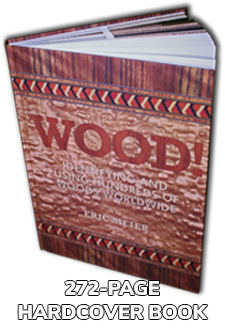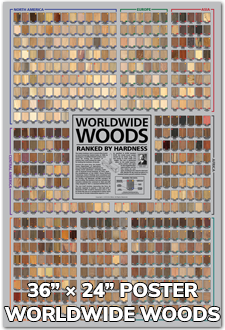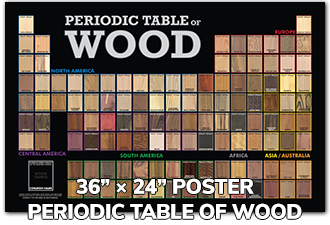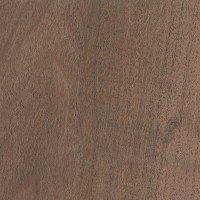 |
Common Name(s): Black Mesquite Scientific Name: Prosopis nigra Distribution: Gran Chaco region of South America Tree Size: 33-52 ft (10-16 m) tall, 1.3-4 ft (.4-1.2 m) trunk diameter Average Dried Weight: 52 lbs/ft3 (825 kg/m3) Specific Gravity (Basic, 12% MC): .67, .83 Janka Hardness: 1,940 lbf (8,630 N) Modulus of Rupture: 11,210 lbf/in2 (77.3 MPa) Elastic Modulus: 1,117,000 lbf/in2 (7.70 GPa) Crushing Strength: 8,490 lbf/in2 (58.6 MPa) Shrinkage: Radial: 2.6%, Tangential: 3.5%, Volumetric: 8.5%, T/R Ratio: 1.3 |
Color/Appearance: Heartwood tends to be a medium to chocolate brown, somewhat reminiscent of Black Walnut. Color tends to darken with age. Sapwood is a yellow/tan color.
Grain/Texture: Black Mesquite has a medium to coarse texture and open pores, with a slight natural luster. Clear portions of the trunk tend to have straight grain, though knots, defects, and other irregularities are common.
Endgrain: Diffuse-porous (or semi-ring-porous); large pores in no specific arrangement, few to moderately numerous; solitary and radial multiples of 2-3; amber-colored deposits occasionally present; growth rings indistinct (or distinct due to marginal parenchyma); medium to large rays may be just barely visible without lens, normal spacing; parenchyma vasicentric, lozenge, and confluent.
Rot Resistance: Black Mesquite is considered durable to very durable regarding decay resistance, though it is susceptible to insect attack.
Workability: Working properties are largely dictated by the quality of the wood itself. Mesquite that is clear and free from defects is easy to work with hand and machine tools, but irregular grain or knots can be challenging. Glues, turns, and finishes well.
Odor: No characteristic odor.
Allergies/Toxicity: Woods in the Prosopis genus have been reported to cause skin irritation. See the articles Wood Allergies and Toxicity and Wood Dust Safety for more information.
Pricing/Availability: Mesquite only tends to be available in small sizes, or as large irregular slabs. Larger boards free from defects are uncommon. Prices for Black Mesquite are in the mid range for an imported tropical hardwood.
Sustainability: This wood species is not listed in the CITES Appendices, but is reported by the IUCN as being data deficient. The IUCN reports that Black Mesquite is widely exploited for its wood, but does not give a full evaluation of its conservation status.
Common Uses: Flooring, turned objects, boatbuilding, and furniture.
Comments: None.
 |
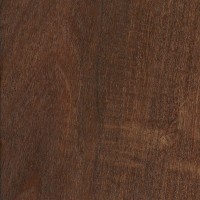 |
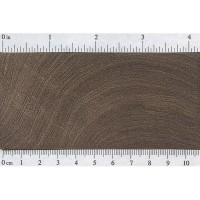 |
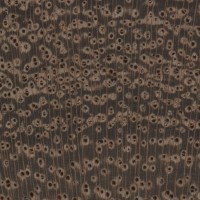 |


